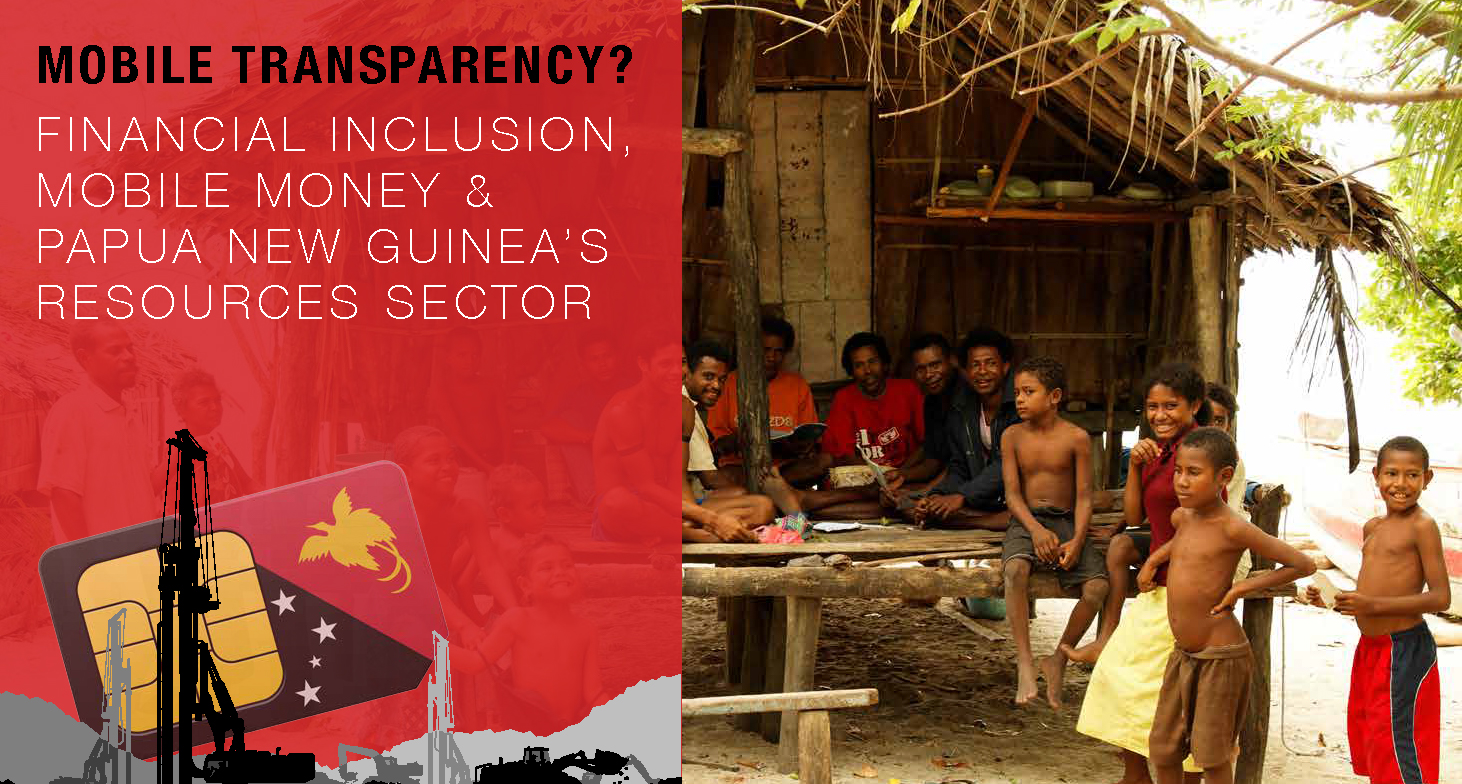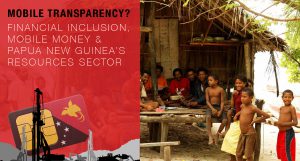Project
Mobile Transparency? Financial Inclusion and PNG's Resources Sector

Papua New Guinea (PNG) has some of the highest unbanked rates in the world. It is estimated that 85% of the rural low-income population do not have reasonable access to formal banking or financial services.
Yet PNGs efforts towards financial inclusion have been gaining momentum. The Centre for Excellence in Financial Inclusion was launched in 2013 to promote PNG’s financial inclusion agenda. The Second National Financial Inclusion Strategy 2016 –2020 was launched in 2016, strengthening PNG’s commitment to various international and regional financial inclusion frameworks including the Maya Declaration, the Alliance for Financial Inclusion, the Money Pacific Goals, the Better than Cash Alliance, and broader commitments under Asia-Pacific Economic Cooperation (APEC) and the G20 Principles for Innovative Financial Inclusion.
To support PNG’s efforts towards greater financial inclusion, Square Circle was engaged by the International Mining for Development Centre to examine financial inclusion, mobile money and the extractives sector in PNG. Our study looked at how extractive companies can use mobile banking to make land rental and royalty payments–instead of using cash–thereby supporting the inclusion of people into the formal economy.
A series of semi-structured interviews and quantitative surveys were conducted with public and private stakeholder partners, including government regulators, industry bodies, banks, telecommunications companies, civil society and the extractives industry. The study found that efforts to strengthen mobile money ecosystems in PNG’s resource regions can improve the distribution of compensation and benefits payments for local communities, strengthen social license for resources companies, and enhance financial inclusion efforts in PNG’s resource regions. The study also highlighted the issue of women and youth often not being direct recipients of resource payments and the impact this continues to have in communities.
Stakeholder implementation of the study’s recommendations has supported greater financial inclusion in the community payments process used by extractive companies.

